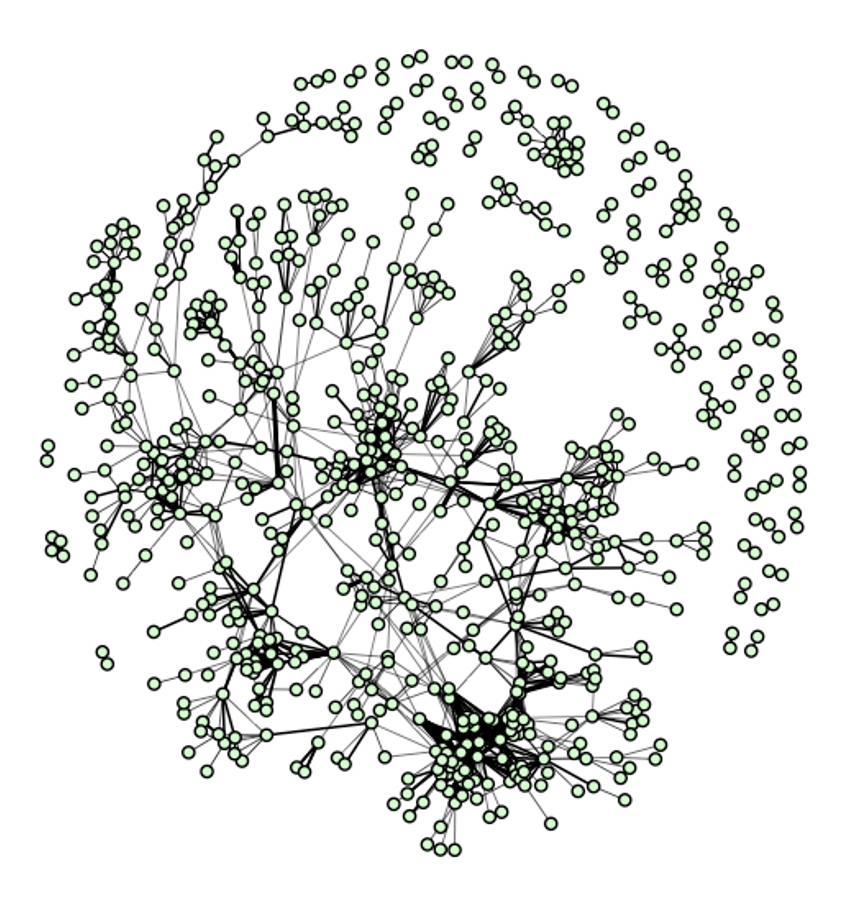Interest groups interact with one another and frequently coordinate their activities, but much of this communication takes place behind closed doors. Drawing on a new study, Stefano Pagliari and Kevin L Young present a novel approach for uncovering networks of interest groups by using ‘text reuse’ analysis.
Everybody knows that interest groups talk to one another and that they sometimes coordinate their actions in ways seeking to maximise their ultimate goals of shaping policy. For social scientists, assessing such patterns has always been challenging.
In-depth qualitative research, for example involving process tracing analysis or the use of data collection such as interviews, has enabled researchers to uncover such forms of coordination. As useful as such approaches are, they are limited in the extent to which they can uncover patterns beyond a few cases. Attempts to quantify interest group coordination have been hindered by the tools available to researchers. How then, aside from years in the field and teams of researchers ploughing through thousands of documents and interviews, do scholars assess the broader ecology of interest group activity?
Some scholars have used evidence of co-authorship ties – the fact that multiple groups sign on to the exact same lobbying letter – as evidence of coordination. A limitation of this approach is that it only captures very explicit, ‘loud’ forms of coordination. Such explicit coordination is very important, but it is only one form of coordination that interest groups can take with one another (as Adriana Bunea has pointed out here). What about more subtle, more informal, forms of interest group coordination? We take this issue up in a new Special Issue of the Journal of European Public Policy, organised by Caelesta Braun and Madalina Busuioc.
In a new study, we advance a new approach to interest group coordination. We developed a unique way of measuring informal patterns of information exchange among interest groups. This is done through the analysis of ‘text reuse.’ The same kinds of algorithms that teachers use to assess plagiarism among students in a class can be used to measure textual similarity among large troves of lobbying documentation.
We sought to use the information about text reuse to build a complex network among interest groups. The central idea is that, if two interest groups plagiarise from each other (we don’t know whom is plagiarising from whom), this creates a tie between them. When you add up all of these ties, a network structure emerges – showing clusters of informal coordination that researchers wouldn’t otherwise be able to see.
For data, we took advantage of a recent innovation in EU policy-making associated with the ‘Better Regulation Agenda’, which expanded the number of policy decisions open to input from stakeholders. This allowed us to capture the broad mobilisation of interest groups across a wide range of topics, from July 2016 to March 2019, across 642 different EU policy initiatives. We found text reuse to occur in approximately 10% of the letters we analysed.
Figure 1: Visual representation of a network of interest groups
Note: For more information, see the authors’ accompanying paper in the Journal of European Public Policy.
The network pictured above provides a representation of text reuse among these interest groups. Analysing these structures of interest group information exchange as a network has not been pursued before. This approach promises to uncover relationships that social scientists and practitioners may find useful in understanding how interest group coordination occurs ‘beneath the surface’ of what is directly observable from groups’ co-signing each other’s letters. In another study, we have used this approach to analyse specifically how European financial networks operate.
Our study of interest groups applies our approach to measuring text reuse to publicly available comment letters by interest groups directed at a wide range of EU policies. Importantly, we compare our ‘text reuse network’; of informational coordination to the more formal, explicit coordination evident in co-signing networks.
This allows us to do two things. First, it allows us to see if patterns of coordination are different when it comes to co-signing versus the kinds of information exchange inherent in text re-use. They are. Second, our approach also allows us to investigate whether there are systematic differences in what might cause interest groups to coordinate with one another.
We find significant differences. For example, informal communication networks tend to be smaller in size and be among the same type of interest group. Yet informal communication networks are also more likely to connect groups across different countries, and are more frequently observed among non-business interest groups. Our analysis is a first comparative step, but one we hope other researchers can use and build on in future research on interest groups.
For more information, see the authors’ accompanying paper in the Journal of European Public Policy
Note: This article gives the views of the authors, not the position of EUROPP – European Politics and Policy or the London School of Economics. Featured image credit: Asparukh Akanayev (CC BY 2.0)




